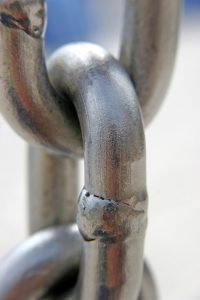
Indianapolis Towing 317-247-8484
Understanding Grades of Chain
As you begin to look for chains, you will notice their grades in the form of a capital letter followed by a number, such as G30. The grade is the maximum breaking strength of the chain, and measured in newtons per millimeter squared (N/mm2). So a chain that is graded as a G30 means that the maximum stress on the chain at its ultimate strength is 300 newtons per millimeter squared. As for towing, the most common chain grades are G43 and G70, but other grades are also necessary if overhead lifting or heavy tie-downs are needed. Look below for details of towing chain grades.
G43:
This is a common chain grade that is suitable for towing, meeting all ASTM and ASME specifications. It most common towing applications include heavy-duty towing, logging, and container securement. But this chain is not intended for overhead lifting. You would need a stronger grade for this type of application.
G70:
This is another common chain grade used for towing applications. As a heat-treated carbon steel chain with no additional alloys added in, it is higher in strength compared to the G43. It has a gold chrome finish that protects it from premature corrosion. Its common towing uses include logging, load securement, trucking, lashing, and even trawling. Just like the G43, it is not intended for overhead lifting.
Recommended Chain Grades for Overhead-Lifting: G80 & G100
Indianapolis Tow Truck Service

Zore’s Towing Indianapolis 317-247-8484
